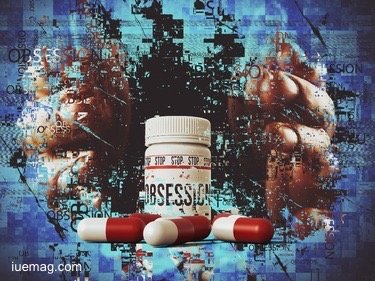

Finding Hope and Healing: A Comprehensive Guide to Choosing the Right Drug & Alcohol Rehab Center
Embarking on a journey to recovery from drug and alcohol addiction marks the beginning of a transformative period in an individual's life. It is a path laden with challenges, but also ripe with opportunities for profound personal growth and healing. The critical first steps toward this journey involve acknowledging the need for help and deciding to make a change a monumental task that requires courage and determination.
 For many, the quest for recovery commences with a simple yet significant action: searching for information. Initiating a search, perhaps by looking up Pacific Ridge online, can serve as the gateway to discovering a rehab center that aligns with one's unique needs and circumstances, setting the stage for a journey towards hope and healing.
For many, the quest for recovery commences with a simple yet significant action: searching for information. Initiating a search, perhaps by looking up Pacific Ridge online, can serve as the gateway to discovering a rehab center that aligns with one's unique needs and circumstances, setting the stage for a journey towards hope and healing.
Understanding Addiction and Its Complexities
Addiction is a multifaceted disease, intricately woven into the fabric of physical, emotional, and mental health. Its complexity necessitates a treatment approach that is as diverse and multifaceted as the condition itself. Addiction distorts the mind's ability to perceive pleasure, creating a dependency that overshadows all other aspects of life.
Individuals and their loved ones must recognize that addiction is not a matter of willpower or moral failing but a chronic condition that requires medical and therapeutic intervention. A personalized approach to alcohol treatment is paramount, as no single treatment is universally effective. Understanding the individual's unique history, circumstances, and needs is the cornerstone of devising a personalized treatment plan that offers the best chance for success.
Types of Rehab Programs: Finding the Right Fit

Navigating the landscape of rehab programs can be daunting, with many options available. The decision between inpatient and outpatient rehab programs hinges on the individual's specific situation. Inpatient programs offer a sanctuary, a place where individuals can immerse themselves in the recovery process away from the triggers and stresses of their daily lives. These programs are particularly suited for those grappling with severe addictions or those whose home environment may not support recovery.
Outpatient programs, conversely, provide flexibility, allowing individuals to integrate treatment into their daily lives. This option is ideal for those with mild to moderate addiction levels who possess a robust support system at home. Beyond the inpatient-outpatient dichotomy lies a spectrum of specialized programs—gender-specific, age-specific, and substance-specific treatments—that cater to particular groups, offering a tailored approach that can significantly enhance the recovery experience.
Key Components of an Effective Rehab Program
The cornerstone of an effective rehab program is its foundation in evidence-based therapies. Approaches like Cognitive Behavioral Therapy (CBT) and Dialectical Behavior Therapy (DBT) delve into the psychological underpinnings of addiction, equipping individuals with the tools to navigate the complexities of their emotions and behaviors. These therapies aim to transform negative thought patterns and behaviors into positive ones, laying the groundwork for sustained recovery.
Additionally, the value of peer support in the recovery journey cannot be overstated. Group therapy sessions and support groups foster a sense of community and shared experience, offering comfort and accountability. Incorporating holistic and alternative therapies—such as meditation, yoga, and art therapy can further personalize the treatment experience, addressing the needs of the whole person rather than focusing solely on the addiction.
The Role of Family in Recovery

The recovery journey does not unfold in isolation; family can play a pivotal role in the process. Engaging family members in the treatment can bolster the support system, providing the individual with a network of understanding and encouragement. However, it is essential to navigate family involvement with care, establishing boundaries that protect the individual's autonomy and the family's well-being. Effective communication and setting clear expectations can ensure that family involvement serves as a pillar of support rather than a source of stress.
Preparing for Life After Rehab
The conclusion of a rehab program does not signify the end of the recovery journey; rather, it marks the beginning of a new chapter. Aftercare is crucial in maintaining the gains made during treatment and preventing relapse. Crafting a comprehensive aftercare plan including ongoing therapy, support groups, and sober living arrangements can provide a safety net, offering guidance and support as individuals navigate the complexities of life post-rehab. Cultivating a robust support network and engaging in healthy, fulfilling activities are vital steps in building a life that supports sustained recovery.
ConclusionThe path to recovery from drug and alcohol addiction is fraught with challenges, yet it is a journey replete with opportunities for growth, healing, and transformation. It demands patience, perseverance, and an unwavering commitment to self-care and support. Individuals embark on a courageous journey towards a brighter, healthier future by taking the initial step toward finding the right rehab center. The road to recovery may be long and winding, but it is a path paved with hope and the promise of a renewed life.
 For many, the quest for recovery commences with a simple yet significant action: searching for information. Initiating a search, perhaps by looking up Pacific Ridge online, can serve as the gateway to discovering a rehab center that aligns with one's unique needs and circumstances, setting the stage for a journey towards hope and healing.
For many, the quest for recovery commences with a simple yet significant action: searching for information. Initiating a search, perhaps by looking up Pacific Ridge online, can serve as the gateway to discovering a rehab center that aligns with one's unique needs and circumstances, setting the stage for a journey towards hope and healing.Understanding Addiction and Its Complexities
Addiction is a multifaceted disease, intricately woven into the fabric of physical, emotional, and mental health. Its complexity necessitates a treatment approach that is as diverse and multifaceted as the condition itself. Addiction distorts the mind's ability to perceive pleasure, creating a dependency that overshadows all other aspects of life.
Individuals and their loved ones must recognize that addiction is not a matter of willpower or moral failing but a chronic condition that requires medical and therapeutic intervention. A personalized approach to alcohol treatment is paramount, as no single treatment is universally effective. Understanding the individual's unique history, circumstances, and needs is the cornerstone of devising a personalized treatment plan that offers the best chance for success.
Types of Rehab Programs: Finding the Right Fit

Navigating the landscape of rehab programs can be daunting, with many options available. The decision between inpatient and outpatient rehab programs hinges on the individual's specific situation. Inpatient programs offer a sanctuary, a place where individuals can immerse themselves in the recovery process away from the triggers and stresses of their daily lives. These programs are particularly suited for those grappling with severe addictions or those whose home environment may not support recovery.
Outpatient programs, conversely, provide flexibility, allowing individuals to integrate treatment into their daily lives. This option is ideal for those with mild to moderate addiction levels who possess a robust support system at home. Beyond the inpatient-outpatient dichotomy lies a spectrum of specialized programs—gender-specific, age-specific, and substance-specific treatments—that cater to particular groups, offering a tailored approach that can significantly enhance the recovery experience.
Key Components of an Effective Rehab Program
The cornerstone of an effective rehab program is its foundation in evidence-based therapies. Approaches like Cognitive Behavioral Therapy (CBT) and Dialectical Behavior Therapy (DBT) delve into the psychological underpinnings of addiction, equipping individuals with the tools to navigate the complexities of their emotions and behaviors. These therapies aim to transform negative thought patterns and behaviors into positive ones, laying the groundwork for sustained recovery.
Additionally, the value of peer support in the recovery journey cannot be overstated. Group therapy sessions and support groups foster a sense of community and shared experience, offering comfort and accountability. Incorporating holistic and alternative therapies—such as meditation, yoga, and art therapy can further personalize the treatment experience, addressing the needs of the whole person rather than focusing solely on the addiction.
The Role of Family in Recovery

The recovery journey does not unfold in isolation; family can play a pivotal role in the process. Engaging family members in the treatment can bolster the support system, providing the individual with a network of understanding and encouragement. However, it is essential to navigate family involvement with care, establishing boundaries that protect the individual's autonomy and the family's well-being. Effective communication and setting clear expectations can ensure that family involvement serves as a pillar of support rather than a source of stress.
Preparing for Life After Rehab
The conclusion of a rehab program does not signify the end of the recovery journey; rather, it marks the beginning of a new chapter. Aftercare is crucial in maintaining the gains made during treatment and preventing relapse. Crafting a comprehensive aftercare plan including ongoing therapy, support groups, and sober living arrangements can provide a safety net, offering guidance and support as individuals navigate the complexities of life post-rehab. Cultivating a robust support network and engaging in healthy, fulfilling activities are vital steps in building a life that supports sustained recovery.
ConclusionThe path to recovery from drug and alcohol addiction is fraught with challenges, yet it is a journey replete with opportunities for growth, healing, and transformation. It demands patience, perseverance, and an unwavering commitment to self-care and support. Individuals embark on a courageous journey towards a brighter, healthier future by taking the initial step toward finding the right rehab center. The road to recovery may be long and winding, but it is a path paved with hope and the promise of a renewed life.
Copyrights © 2026 Inspiration Unlimited - iU - Online Global Positivity Media
Any facts, figures or references stated here are made by the author & don't reflect the endorsement of iU at all times unless otherwise drafted by official staff at iU. A part [small/large] could be AI generated content at times and it's inevitable today. If you have a feedback particularly with regards to that, feel free to let us know. This article was first published here on 10th April 2024.
Want to Publish About Your Business / Achievements
Let's Discuss Right Away!

All chats are end-to-end encrypted by WhatsApp and won't be shared anywhere [won't be stored either].

